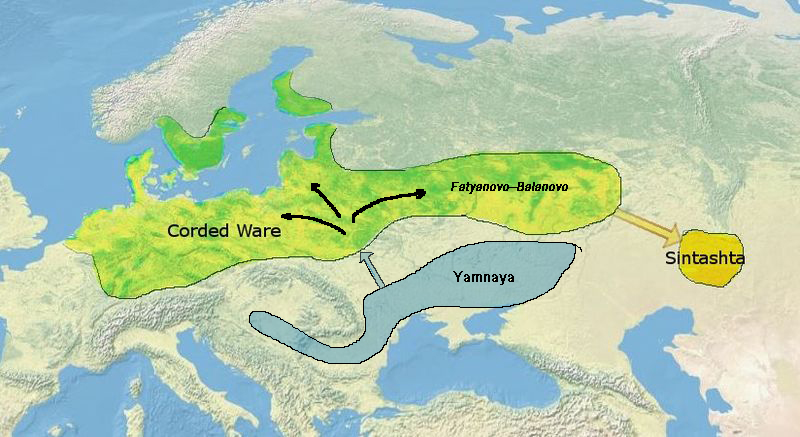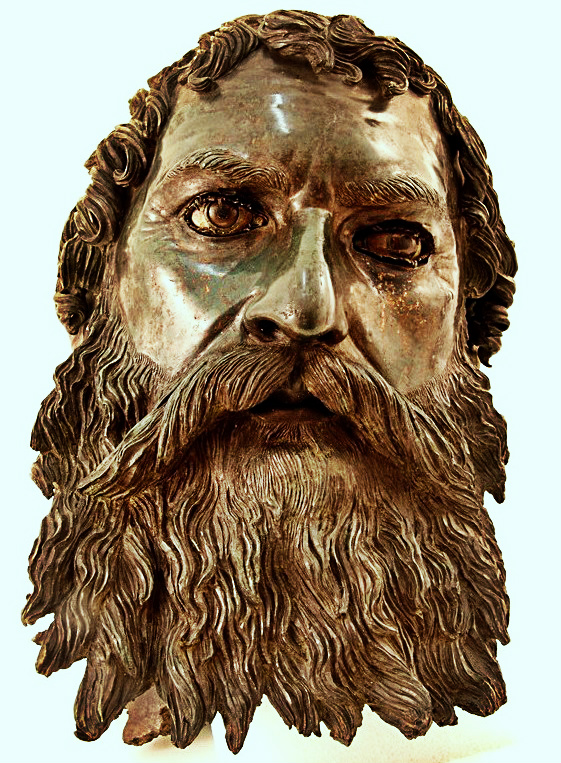|
National Mysticism
National mysticism (German: ''Nationalmystik'') or mystical nationalism is a form of nationalism that elevates the nation to the status of numen or divinity. Its best-known instance is Germanic mysticism, which gave rise to occultism under the Third Reich. The idea of the nation as a divine entity was presented by Johann Gottlieb Fichte. National mysticism is closely related to Romantic nationalism, but goes beyond the expounding of romantic sentiment, to a mystical veneration of the nation as a transcendent truth. It often intersects with ethnic nationalism by pseudohistorical assertions about the origins of a given ethnicity. National mysticism is encountered in many forms of nationalism other than Germanic or Nazi mysticism and expresses itself in the use of occult, pseudoscientific, or pseudohistorical beliefs to support nationalistic claims, often involving unrealistic notions of the antiquity of a nation or any national myth defended as "true" by pseudo-scholarly means. No ... [...More Info...] [...Related Items...] OR: [Wikipedia] [Google] [Baidu] |
Nationalism
Nationalism is an idea or movement that holds that the nation should be congruent with the state. As a movement, it presupposes the existence and tends to promote the interests of a particular nation, Smith, Anthony. ''Nationalism: Theory, Ideology, History''. Polity, 2010. pp. 9, 25–30; especially with the aim of gaining and maintaining its sovereignty ( self-governance) over its perceived homeland to create a nation-state. It holds that each nation should govern itself, free from outside interference (self-determination), that a nation is a natural and ideal basis for a polity, and that the nation is the only rightful source of political power. It further aims to build and maintain a single national identity, based on a combination of shared social characteristics such as culture, ethnicity, geographic location, language, politics (or the government), religion, traditions and belief in a shared singular history, and to promote national unity or solidarity. There are ... [...More Info...] [...Related Items...] OR: [Wikipedia] [Google] [Baidu] |
Manifest Destiny
Manifest destiny was the belief in the 19th century in the United States, 19th-century United States that American pioneer, American settlers were destined to expand westward across North America, and that this belief was both obvious ("''manifest''") and certain ("''destiny''"). The belief is rooted in American exceptionalism, Romantic nationalism, and white nationalism, implying the inevitable spread of republicanism and the American way. It is one of the earliest expressions of American imperialism in the United States. According to historian William Earl Weeks, there were three basic tenets behind the concept: * The assumption of the unique moral virtue of the United States. * The assertion of its mission to redeem the world by the spread of republican government and more generally the "American way of life". * The faith in the nation's divinely ordained destiny to succeed in this mission. Manifest destiny remained heavily divisive in politics, causing constant conflict ... [...More Info...] [...Related Items...] OR: [Wikipedia] [Google] [Baidu] |
George William Russell
George William Russell (10 April 1867 – 17 July 1935), who wrote with the pseudonym Æ (often written AE or A.E.), was an Irish writer, editor, critic, poet, painter and Irish nationalist. He was also a writer on mysticism, and a central figure in the group of devotees of theosophy which met in Dublin for many years. Early life Russell was born in Lurgan, County Armagh (not in Portadown as has sometimes been misreported), in Ireland, the second son of Thomas Russell and Mary Armstrong. His father, the son of a small farmer, became an employee of Thomas Bell and Co., a prosperous firm of linen drapers. The family relocated to Dublin, where his father had a new offer of employment, when George was eleven years old. The death of his beloved sister Mary, aged 18, was a blow from which he took a long time to recover. He was educated at Rathmines School and the Metropolitan School of Art, where he began a lifelong, if sometimes contentious, friendship with W. B. Yeats. In ... [...More Info...] [...Related Items...] OR: [Wikipedia] [Google] [Baidu] |
Indonesian Nationalism
Indonesian nationalism is an ideology that arose during the Dutch colonial empire, Dutch colonial era in the Dutch East Indies which called for the colony's independence and unification as an independent and sovereign nation. This period of nationalist development under colonial rule is often called the Indonesian National Awakening. After Indonesia Indonesian Declaration of Independence, declared independence in 1945 and was recognized as independent of the Netherlands in 1949 following the Indonesian National Revolution, Indonesian nationalism persisted as a set of ideologies supporting the continued independence and development of the newly formed country. Indonesian nationalism primarily emerged in urban areas where it subsequently diffused to rural areas. Indonesian nationalism has been described as emerging in the early 20th century, with the establishment of Budi Utomo in 1908. Diponegoro, Prince Diponegoro has been considered a forerunner to the Indonesian nationalist m ... [...More Info...] [...Related Items...] OR: [Wikipedia] [Google] [Baidu] |
Holy Crown Of Hungary
The Holy Crown of Hungary ( , ), also known as the Crown of Saint Stephen, named in honour of Saint Stephen I of Hungary, was the coronation crown used by the Kingdom of Hungary for most of its existence; kings were crowned with it since the twelfth century. The Crown symbolized the King's authority over the Lands of the Hungarian Crown (the Pannonian Basin, Carpathian Basin), and it was a key mark of Legitimacy (political), legitimacy. Through the history of Hungary, more than fifty kings were Coronation of the Hungarian monarch, crowned with it, with the last being Charles I of Austria, Charles IV in 1916. The only kings not crowned were Władysław III of Poland, Wladyslaw I, John Sigismund Zápolya, and Joseph II, Holy Roman Emperor, Joseph II. The enamels on the crown are mainly or entirely Byzantine Empire, Byzantine work, presumed to have been made in Constantinople in the 1070s. The crown was presented by the Byzantine Emperor Michael VII Doukas to the King Géza I of H ... [...More Info...] [...Related Items...] OR: [Wikipedia] [Google] [Baidu] |
Hoteps
Hoteps are members of an African American subculture that appropriates ancient Egyptian history as a source of Black pride. They have been described as promoting pseudohistory and misinformation about African-American history. Hoteps espouse a mixture of Black radicalism and social conservatism. Notable people who have promoted hotep ideas, or have been described as part of hotep subculture, include Kanye West, Kyrie Irving, and Umar Johnson. Etymology The term "hotep" was originally used among Afrocentrists as a greeting, similar to "I come in peace", but by the mid-2010s had come to be used disparagingly to "describe a person who's either a clueless parody of Afrocentricity" or "someone who's loudly, conspicuously and obnoxiously pro-black but anti-progress". Ideology One of their more recognizable beliefs uses modern American racial and ethnic constructs to define the civilization of ancient Egypt, asserting that it was racially homogeneous and uniformly made up of a ... [...More Info...] [...Related Items...] OR: [Wikipedia] [Google] [Baidu] |
Hindu Nationalism
Hindu nationalism has been collectively referred to as the expression of political thought, based on the native social and cultural traditions of the Indian subcontinent. "Hindu nationalism" is a simplistic translation of . It is better described as "Hindu polity". The native thought streams became highly relevant in Indian history when they helped form a distinctive identity about the Indian polityChatterjee Partha (1986) and provided a basis for questioning colonialism.Peter van der Veer, Hartmut Lehmann, Nation and religion: perspectives on Europe and Asia, Princeton University Press, 1999 p. 90 These also inspired Indian nationalism, Indian nationalists during the Indian independence movement, independence movement based on armed struggle,Li Narangoa, R. B. Cribb ''Imperial Japan and National Identities in Asia'', 1895–1945, Published by Routledge, 2003 p. 78 coercive politics,Bhatt, Chetan, ''Hindu Nationalism: Origins, Ideologies and Modern Myths'', Berg Publishers (20 ... [...More Info...] [...Related Items...] OR: [Wikipedia] [Google] [Baidu] |
Indigenous Aryanism
Indigenous Aryanism, also known as the Indigenous Aryans theory (IAT) and the Out of India theory (OIT), is the conviction that the Aryans are indigenous to the Indian subcontinent, and that the Indo-European languages radiated out from a homeland in India into their present locations. It is a " religio-nationalistic" view of Indian history, and propagated as an alternative to the established migration model, which considers the Pontic–Caspian steppe to be the area of origin of the Indo-European languages. Reflecting traditional Indian views based on the Puranic chronology, indigenists propose an older date than is generally accepted for the Vedic period, and argue that the Indus Valley civilisation was a Vedic civilization. In this view, "the Indian civilization must be viewed as an unbroken tradition that goes back to the earliest period of the Sindhu-Sarasvati (or Indus) tradition (7000 or 8000 BCE)." Support for the IAT mostly exists among a subset of Indian sc ... [...More Info...] [...Related Items...] OR: [Wikipedia] [Google] [Baidu] |
Epsilonism
The Epsilon Team () is an alleged secret society that appears in modern Greek folklore, conspiracy theories and ufology. The team was first described in a 1977 book, and supposedly consists of prominent Greek people who possess secret knowledge of extraterrestrial origin. Beginning in the 1980s, literature about the society became infused with anti-Semitic conspiracy theories, placing the Epsilon Team in a cosmic battle against the Jews. The body of beliefs related to the Epsilon Team has been labeled epsilonism, and those who subscribe to it have been labeled epsilonists. History Epsilon is the fifth letter of the Greek alphabet, and has a modern history as a symbol for freedom and Greece. It was notably used in this capacity during the Greek War of Independence. A precursor to the epsilonists was Spyridon Nagos, a Freemason and socialist who in the early 20th century envisioned a secret society of high-ranking Greeks, working in secret to benefit their country. The originator ... [...More Info...] [...Related Items...] OR: [Wikipedia] [Google] [Baidu] |
Illyrian Movement
The Illyrian movement (; ) was a pan-South-Slavic cultural and political campaign with roots in the early modern period, and revived by a group of young Croatian intellectuals during the first half of the 19th century, around the years of 1835 to 1863. This movement aimed to create a Croatian national establishment in Austria-Hungary through linguistic and ethnic unity, and through it lay the foundation for cultural and linguistic unification of all South Slavs under the revived umbrella term '' Illyrian''. Aspects of the movement pertaining to the development of Croatian culture are considered in Croatian historiography to be part of the Croatian national revival (). Name Views of Josip Kušević inspired the nascent Croatian national revival movement. His view that the South Slavs are indigenous population, tracing their origin to the Illyrians inhabiting the Balkan Peninsula in ancient times, led him to hypothesise that there is a common South Slavic language which he r ... [...More Info...] [...Related Items...] OR: [Wikipedia] [Google] [Baidu] |
Thracians
The Thracians (; ; ) were an Indo-European languages, Indo-European speaking people who inhabited large parts of Southeast Europe in ancient history.. "The Thracians were an Indo-European people who occupied the area that today is shared between Thrace, north-eastern Greece, Romania, and north-western Turkey. They shared the same language and culture. There may have been as many as a million Thracians, divided among up to 40 tribes." Thracians resided mainly in Southeast Europe in Present (time), modern-day Bulgaria, Romania, North Macedonia, northern Greece and European Turkey, but also in north-western Anatolia, Anatolia (Asia Minor) in Turkey. The exact origin of the Thracians is uncertain, but it is believed that Thracians like other Indo-European speaking groups in Europe descended from a mixture of Proto-Indo-Europeans and Early European Farmers. Around the 5th millennium BC, the inhabitants of the eastern region of the Balkans became organized in different groups of Indi ... [...More Info...] [...Related Items...] OR: [Wikipedia] [Google] [Baidu] |
British Israelism
British Israelism (also called Anglo-Israelism) is a pseudo-historical belief that the people of Great Britain are "genetically, racially, and linguistically the direct descendants" of the Ten Lost Tribes of ancient Israel. With roots in the 16th century, British Israelism was inspired by several 19th century English writings such as John Wilson's 1840 ''Our Israelitish Origin''. From the 1870s onward, numerous independent British Israelite organizations were set up throughout the British Empire as well as in the United States; as of the early 21st century, a number of these organizations are still active. In the United States, the idea gave rise to the Christian Identity movement. The central tenets of British Israelism have been refuted by archaeological, ethnological, genetic, and linguistic research. History Earliest recorded expressions According to Brackney (2012) and Fine (2015), the French Huguenot magistrate M. le Loyer's ''The Ten Lost Tribes'', published in 15 ... [...More Info...] [...Related Items...] OR: [Wikipedia] [Google] [Baidu] |






